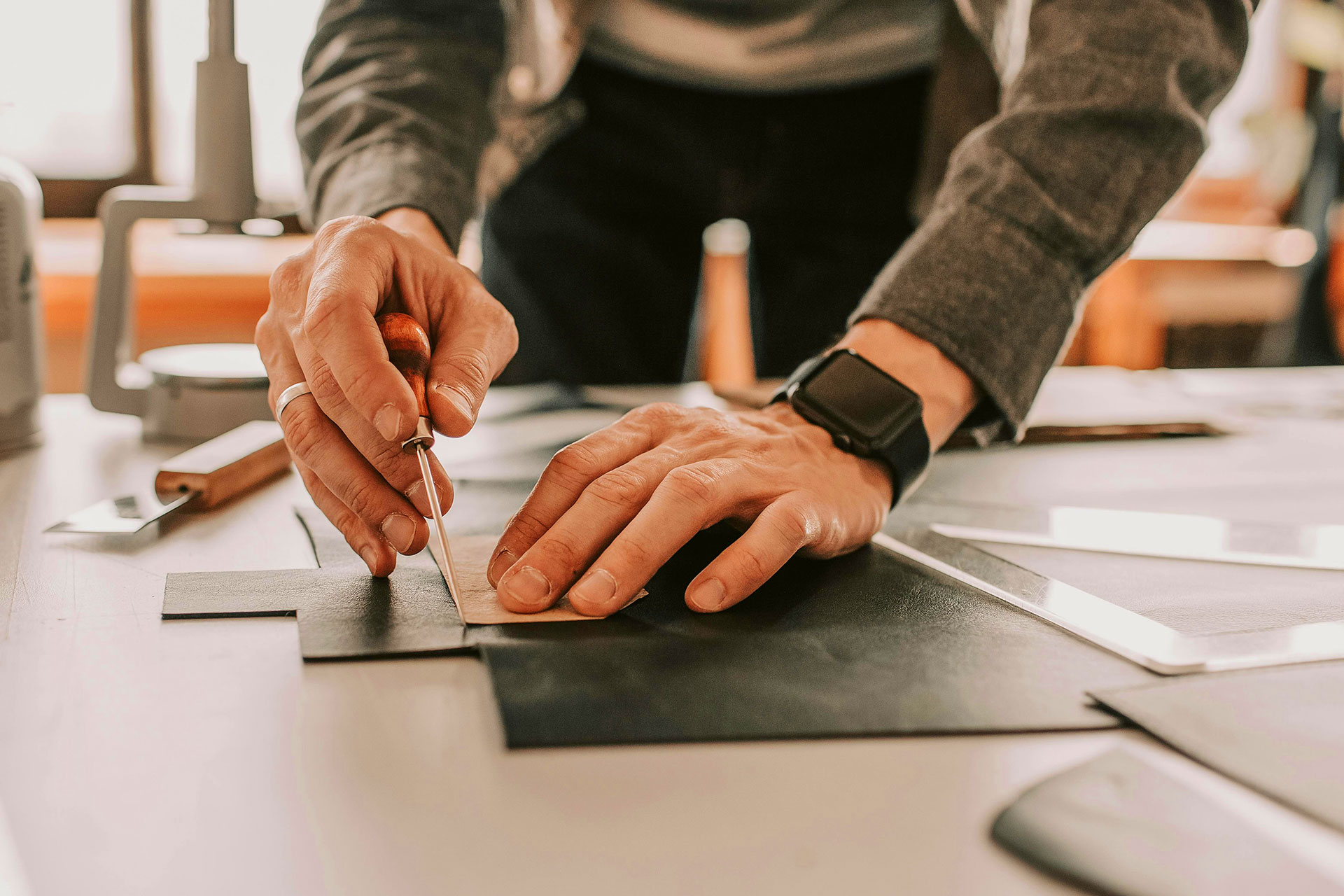
12 Apr What the Wrong Tool Does to Your Reputation
You might get by with the wrong blade once. Maybe even twice. But eventually, a crooked stitch, a ragged edge, a sloppy grommet starts whispering behind your back. Because when your tools underperform, so do you. And in the world of leatherwork, the smallest mistake leaves the loudest mark.
Craft has memory. And so do clients.
A Bad Tool Doesn’t Just Slow You Down—It Drags Your Name With It
The wrong awl wobbles. The cutter skips. The cheap hammer flattens instead of striking. You feel the friction, the fight. The result? Work that looks unsure. Stressed seams. Edges that don’t quite line up.
And here’s the part most makers know in their gut—every flaw sticks around. It’s stitched into the final piece. Into the impression your client takes home.
And no one blames the tool. They blame you.
What the Right Tools Do—Without Fanfare
The right tool doesn’t apologize. It gets out of the way and lets your skill speak clearly.
- Blades that glide without pulling the grain
- Awls that pierce without splitting
- Creasers that leave clean, professional detail lines
- Setters that finish hardware flush, not dented or uneven
These things seem small. Until you stack them. Then suddenly, you’re not just crafting—you’re building trust.
Your Bench Is Your Brand
A clean cut isn’t just technique—it’s reputation. A well-placed stitch? That’s someone seeing your work and saying, “They know what they’re doing.”
And let’s be real: no one ever built a legacy with tools that break mid-project. That squeak. That slip. That needs replacing every season.
That’s why seasoned makers invest in tools that earn their keep. Tools with history. Tools with steel that hold its edge and handles that wear in—not out.
Conclusion
Your product might travel farther than you ever will. A belt, a saddle, a satchel—it lives out in the world, silently representing your standard. Long after the sale. Long after the conversation.
So the tools you choose? They matter. Because they’re not just shaping leather.
They’re shaping how you’re remembered.
And when you’re remembered for quality, precision, and integrity. That’s when your name really starts to mean something.


